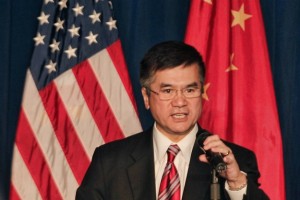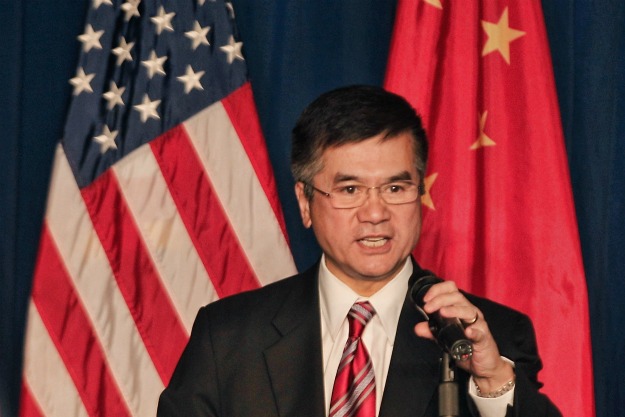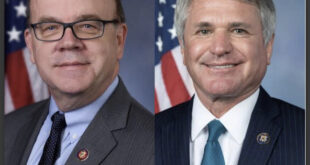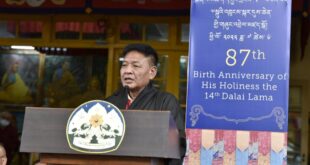By MARY KISSEL
THE WALL STREET JOURNAL | POLITICAL DIARY
October 18, 2012
The State Department has rightly taken a beating for its mishandling of the Benghazi terrorist attack last month that killed four Americans. But as the media scrambles to cover that mess, another important—and positive—diplomatic story that’s developing out of China has gotten too little attention: Namely, that Ambassador Gary Locke traveled to the most restive part of Tibet last month and met monks and local residents.

Such trips are very rare. Beijing has had Tibet under military lockdown since a monk set himself on fire to protest Chinese rule in February 2009. A few foreign journalists have managed to sneak in, but they’ve been ejected quickly. Yet under circumstances which still aren’t entirely clear, Mr. Locke visited two monasteries in the Aba Prefecture of Sichuan Province last month. The news broke after a photo of the ambassador shaking hands with a monk was posted to Twitter. The area is home to 33 of the 55 Tibetans who have self-immolated since 2009, according to the International Campaign for Tibet.
Mr. Locke told the New York Times that he wanted to see the place “for himself” and “was struck by the unique Tibetan culture . . .. Ethnic diversity adds richness to a society.” But the trip wasn’t just about observing the terrain and local customs. The U.S. diplomat’s presence sends a message to Tibetans that the outside world cares about their plight, and it tells the Communist Party leadership that Washington is watching what they do. This is a switch from the early years of the Obama administration, when human rights in China took a back seat to priorities like climate change.
News of the trip may not make waves in the U.S., but it will in Tibet. When Congress awarded the Dalai Lama America’s highest civilian honor in 2007, celebrations erupted across the region, despite China’s attempt to censor the news. It’s reasonable to assume that word of the ambassador’s visit last month will spread like wildfire too, if it hasn’t already.
Mr. Locke’s visit is reminiscent of his predecessor Jon Huntsman’s stroll through a protest in Beijing in February 2011 that erupted in sympathy with pro-democracy movements in the Middle East. That makes two China ambassadors in a row who have demonstrated a concern for human rights and basic freedoms and given other countries political cover to do so, too. Now that’s a State Department story worth praising.


